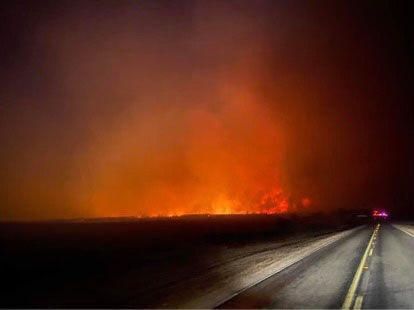After months of unrelenting drought conditions in Oklahoma, Gov. Kevin Stitt signed an executive order on Sept. 12 to provide drought relief for agriculture producers in the state.
Although all 77 Oklahoma counties are experiencing drought conditions, western Oklahoma is in extreme drought and, in many areas, farmers are being forced to sell their cattle due to high feed prices, lack of grass and reduced hay availability. Many producers are getting déjà vu of the memorable 2011 drought.
"I will always do everything in my power to support Oklahoma’s great farmers and ranchers who work hard every day to feed our state and our nation," Stitt said in a statement. "Whether it’s inflation or drought conditions, our agriculture producers have been dealing with some tough challenges this year so I am glad that with the help of the legislature we can help provide this relief."
Stitt’s executive order specified the use of the Emergency Drought Relief Fund—which contains $3 million—to alleviate some the strain on farmers and ranchers. The order also stated that an emergency drought commission would be formed immediately to determine best uses for the funds in assisting producers affected by drought. The commission will include Oklahoma Secretary of Agriculture Blayne Arthur, Executive Director of the Oklahoma Conservation Commission Trey Lam and Executive Director of the Oklahoma Water Resources Board Julie Cunningham. Arthur said she plans to focus on water first and foremost.
"I am always incredibly appreciative of the governor’s support of Oklahoma farmers and ranchers," Arthur said in the statement. "Oklahoma agriculture producers have seen extreme drought conditions throughout this year and livestock producers in particular are struggling with lack of pasture, hay and water.”
The Emergency Drought Relief Funds will be in addition to other existing Farm Service Agency programs available to farmers and ranchers. Arthur said the money in this relief fund is unique because it was directed through the Oklahoma state legislature and the governor determined these funds should be used at this time to mitigate drought conditions.
Lacey Vilhauer can be reached at 620-227-1871 or [email protected].




